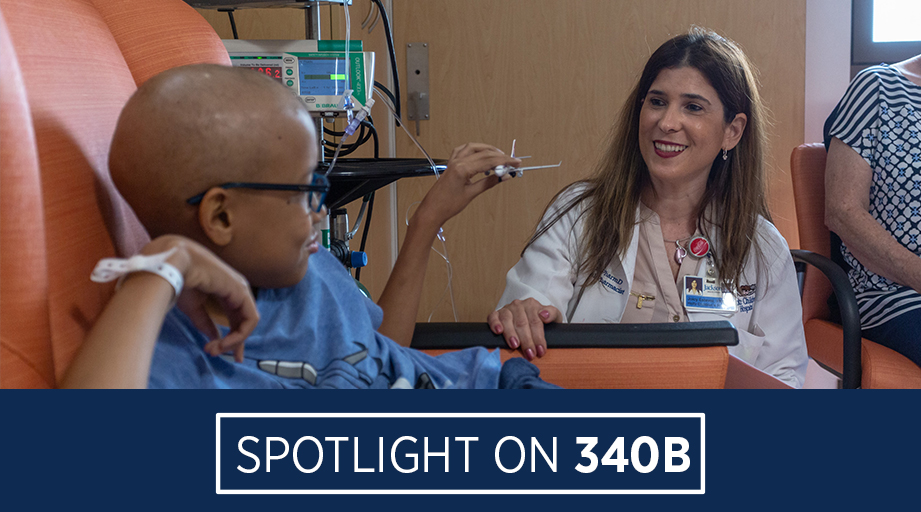
After missing appointments and skipping her prescribed medication for more than a year, the patient showed up at University of Chicago Medicine’s primary care clinic in February with a dangerously high blood sugar level.
That day, clinicians got her an insulin pen injection at a discounted price through the on-site pharmacy and helped her secure a continuous glucose monitoring system, according to clinical pharmacist Amy Wainright. But the patient was wary of self-administering injections, so she continued going to the clinic for daily injection supervision for a week.
By July, the patient’s blood sugar levels had dropped to a treatment target that reduced her risk of diabetes-related complications. She transitioned to oral medications, switched to a traditional glucometer — and stayed out of the emergency department (ED).
That is no small measure of success at University of Chicago Medicine (UCM), an academic medical center that cares for a large share of Medicaid and uninsured residents living in low-income neighborhoods on Chicago’s South Side.
Spotlight on 340B
The federal 340B Drug Pricing Program plays a key role in helping safety-net providers reach underserved patients. But drug manufacturers are leading attacks on the program. In this series, ASHP is highlighting how health systems depend on savings from the program for critical programs and services.
And UCM pharmacy leaders say that patient’s story could have ended differently had it not been for services and medication discounts made possible by savings from the 340B Drug Pricing Program.
“We know the value of the 340B program,” said Dahlia Sultan, clinical manager of ambulatory pharmacy.
The health system has built in several initiatives that help ensure patients get their medications and stay on them.
For example, patients who are uninsured or underinsured can pay a fixed price of $5 or $10 for commonly prescribed medications, including inhalers, antimicrobials, and antidiabetic and antihypertensive drugs.
When patients come into the primary clinic and acknowledge they have not taken their medications, the top reason is affordability, said Wainright.
Often, she said, the patients get a 30-day supply from the $5 and $10 list, which can buy clinic staff some time to navigate other options, such as the Medicare Part D coverage gap.
The primary care clinic also includes a pharmacist-run program for patients with hypertension, she said. Patients get low- cost antihypertensive medications as well as free blood pressure cuffs so they can monitor their blood pressure at home.
Savings from 340B also allowed UCM to open an outpatient pharmacy in its ED in 2018. Making sure patients leave with their medications in hand — no matter the hour — improves the odds they will take them, said Denise Scarpelli, vice president and chief pharmacy officer.
The four pharmacists who run the ED pharmacy fill an average of 60 prescriptions a day, she said. Hours are 8 a.m.– 4 a.m.
“Without our 340B savings, we would not have been able to stand this (pharmacy) up,” Scarpelli said.
Chicago’s South Side has been identified as a pharmacy desert after multiple retail chain pharmacies closed in recent years. Studies looking at the city’s low-income neighborhoods found that pharmacy accessibility on the South Side was half that of the rest of Chicago, according to an AJHP article that Scarpelli co-authored in 2022.
Just this year, she said, two nearby Walmarts closed. “Those patients had nowhere else to go,” she said.
Because of the South Side’s limited pharmacy access, UCM embarked on another initiative this year: a mail-order prescription program. The health system is using the anticipated savings from 340B to pay for staff to run the program, which covers shipping fees — around $20 per package — for patients.
“Without the 340B savings, health systems that benefit from the program will not be able to continue to provide programs like these that address health disparities facing our patients in the communities we serve,” said Scarpelli.








